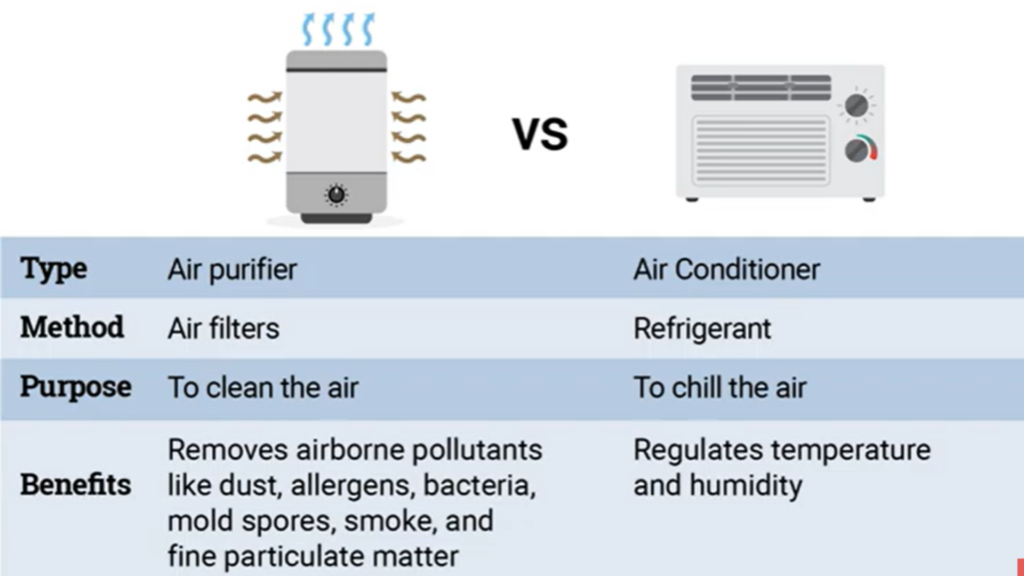
Is a humidifier or an air purifier better? The answer depends on your specific needs. A humidifier adds moisture to the air, while an air purifier removes pollutants. This in-depth comparison will help you decide which air quality improvement device is right for you.
Deciding Between a Humidifier and an Air Purifier
Choosing between a humidifier and an air purifier involves indoor air quality comparison. Both aim to improve your home environment, but they tackle different problems. Humidifiers address dryness, while air purifiers combat pollutants. To make the best choice, consider your individual needs and circumstances. This article explores the humidifier vs air purifier benefits, helping you choose the right device.
Why Consider Air Quality Devices?
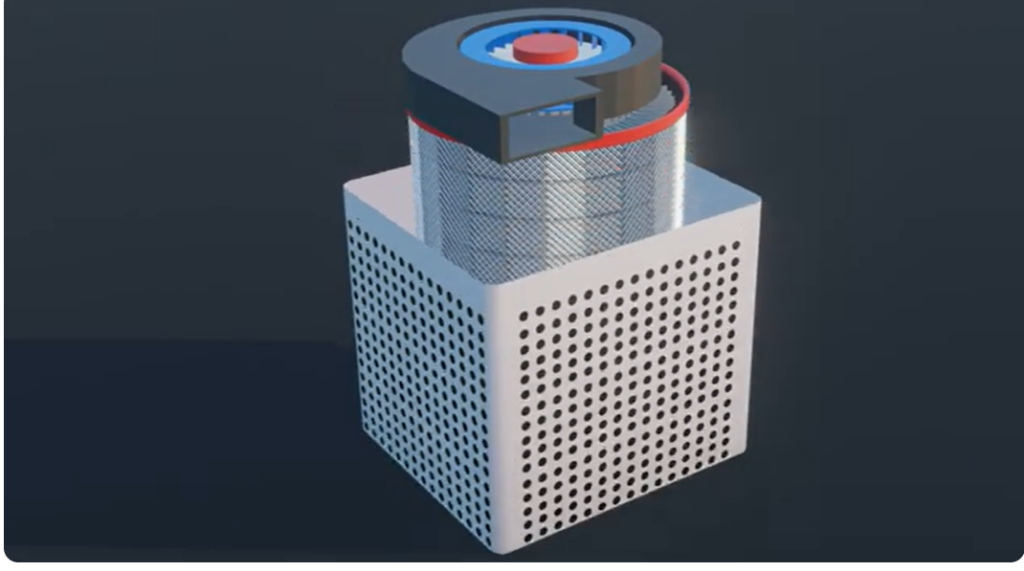
Poor indoor air quality can lead to various health issues. Dry air can irritate your sinuses, skin, and throat. Pollutants like dust, pollen, and mold can trigger allergies and asthma. Both humidifiers and air purifiers can create a healthier and more comfortable living space. Think of them as vital respiratory health solutions.
Defining Humidifiers: Fighting Dry Air
What is a humidifier? A humidifier is a device that increases the moisture level in the air. They are particularly useful in dry climates or during winter when heating systems can strip moisture from the air. They offer effective dry air remedies.
Types of Humidifiers
- Central Humidifiers: Integrated into your HVAC system, these humidifiers provide moisture to the entire house.
- Evaporative Humidifiers: These use a wick filter to absorb water and a fan to blow air through it, evaporating the water.
- Ultrasonic Humidifiers: These use high-frequency sound vibrations to create a fine mist.
- Steam Vaporizers: These boil water to create steam, which is then released into the air.
- Impeller Humidifiers: These use a rotating disk to fling water onto a diffuser, creating a cool mist.
Benefits of Humidifiers
- Alleviates Dry Skin: Adds moisture to the air, preventing dry, itchy skin.
- Reduces Static Electricity: Helps reduce static shock in dry environments.
- Eases Congestion: Moist air can help loosen congestion and relieve coughs. This is a major humidifier for congestion benefit.
- Protects Wood Furniture: Prevents wood furniture from cracking due to dryness.
- Better Sleep: Can help reduce snoring and improve sleep quality.
Potential Drawbacks of Humidifiers
- Maintenance: Requires regular cleaning to prevent mold and bacteria growth.
- Over-Humidification: Too much moisture can promote mold and dust mite growth.
- Noise: Some models can be noisy, disrupting sleep.
- Cost: Initial purchase and ongoing maintenance costs.
Defining Air Purifiers: Eliminating Pollutants
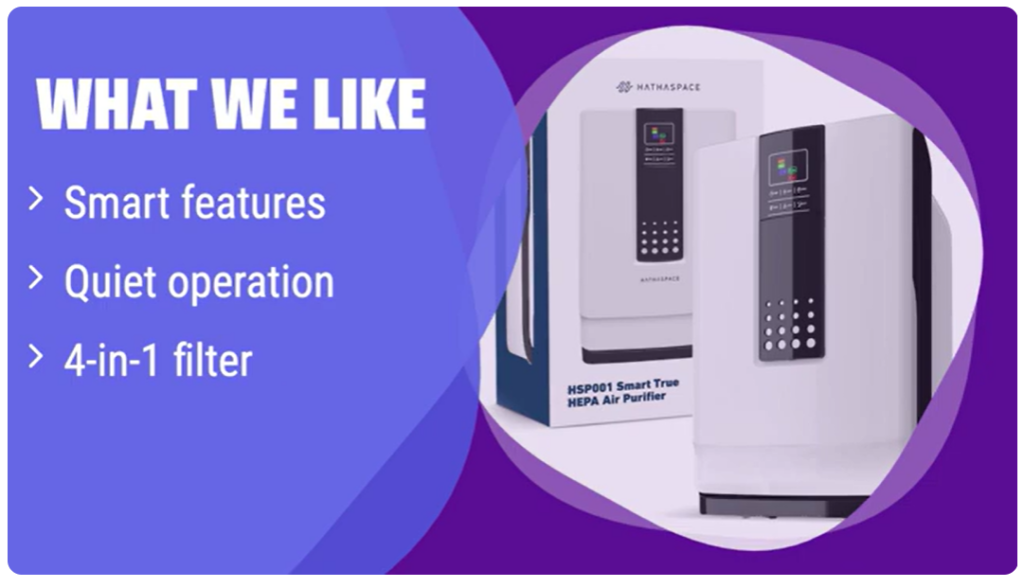
What is an air purifier? An air purifier is a device that removes pollutants from the air. These pollutants can include dust, pollen, pet dander, smoke, and mold spores. Air purifiers are clean air solutions for those concerned about airborne contaminants.
Types of Air Purifiers
- HEPA Air Purifiers: These use HEPA (High-Efficiency Particulate Air) filters to trap particles.
- Activated Carbon Air Purifiers: These use activated carbon filters to absorb odors and gases.
- UV Air Purifiers: These use ultraviolet (UV) light to kill bacteria and viruses.
- Ionic Air Purifiers: These release ions that attach to particles, making them heavier and easier to trap.
- Ozone Generators: While sometimes marketed as air purifiers, these emit ozone, which can be harmful to your health.
Benefits of Air Purifiers
- Reduces Allergens: Removes pollen, dust, and pet dander, providing allergy relief devices and minimizing allergy symptoms.
- Eliminates Odors: Activated carbon filters can remove unpleasant smells.
- Reduces Asthma Triggers: Removes dust mites and mold spores, benefiting those with asthma. This is a key air purifier for asthma advantage.
- Removes Smoke: Effective at removing smoke particles from the air.
- Improves Overall Air Quality: Removes various pollutants, creating a healthier indoor environment.
Potential Drawbacks of Air Purifiers
- Filter Replacement: Requires regular filter replacement, adding to the cost.
- Noise: Some models can be noisy.
- Ozone Emission: Some air purifiers emit ozone, a harmful gas.
- Limited Effectiveness: May not remove all pollutants, especially gases.
- Cost: Initial purchase and ongoing filter replacement costs.
Humidifier vs Air Purifier: A Detailed Comparison
Here’s a detailed table comparing humidifiers and air purifiers across various factors:
| Feature | Humidifier | Air Purifier |
|---|---|---|
| Primary Function | Adds moisture to the air | Removes pollutants from the air |
| Best For | Dry skin, congestion, dry air | Allergies, asthma, odors |
| Pollutants Addressed | N/A | Dust, pollen, pet dander, smoke |
| Maintenance | Regular cleaning to prevent mold | Filter replacement |
| Cost | Lower initial cost, moderate upkeep | Moderate initial cost, higher upkeep |
| Noise | Some models can be noisy | Some models can be noisy |
| Health Benefits | Alleviates dryness, eases congestion | Reduces allergies, asthma triggers |
Fathoming Your Needs: Choosing the Right Device
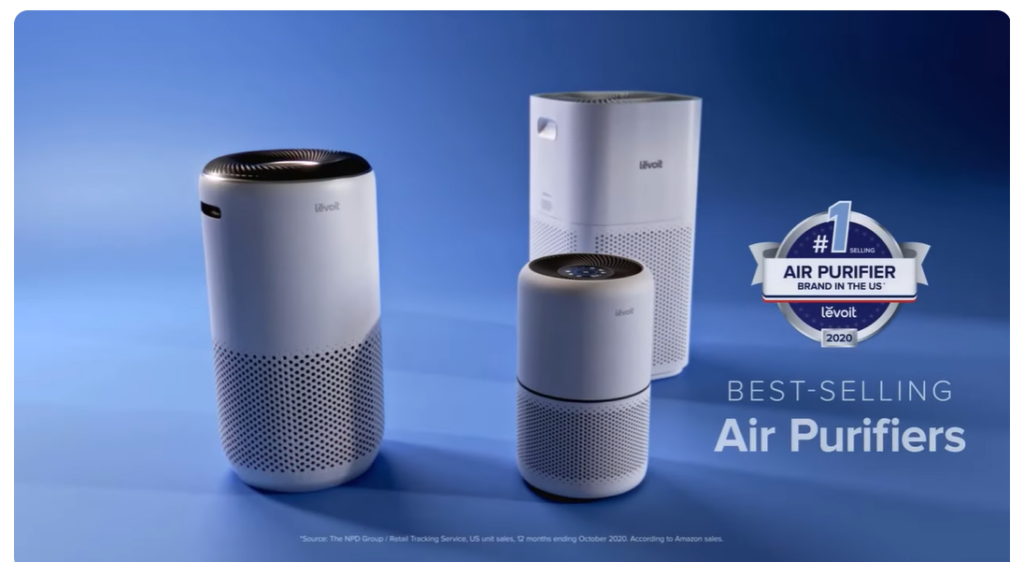
To decide whether a humidifier or an air purifier is better for you, consider the following factors:
Assessing Your Environment
- Climate: If you live in a dry climate, a humidifier may be more beneficial. In areas with high pollution, an air purifier may be more necessary.
- Season: Humidifiers are often used during the winter months when heating systems dry out the air. Air purifiers can be used year-round to combat allergens and pollutants.
- Home Size: Consider the size of the area you want to treat. Larger spaces may require larger or multiple devices.
Gauging Your Health Concerns
- Allergies: If you suffer from allergies, an air purifier can help remove allergens from the air.
- Asthma: Air purifiers can reduce asthma triggers, such as dust mites and mold spores.
- Dry Skin: Humidifiers can alleviate dry skin and prevent irritation.
- Congestion: Moist air from a humidifier can help loosen congestion and relieve coughs.
- Respiratory Issues: Both devices can contribute to better respiratory health solutions, but address different root causes.
Considering Other Factors
- Budget: Consider the initial cost of the device and the ongoing maintenance costs, such as filter replacements or cleaning supplies.
- Maintenance: Think about how much time and effort you are willing to invest in maintaining the device.
- Noise Level: If you are sensitive to noise, choose a model that operates quietly.
- Features: Look for features that are important to you, such as automatic shut-off, adjustable settings, and smart technology.
Can I Use Both a Humidifier and an Air Purifier?
Yes, you can use both a humidifier and an air purifier. In fact, using both can provide comprehensive air quality improvement. The air purifier will remove pollutants, while the humidifier will add moisture to the air. However, it’s important to place them strategically. Don’t put them right next to each other, as the moisture from the humidifier could potentially damage the air purifier’s filter.
The Synergistic Effect of Combining Devices
Using both a humidifier and an air purifier can create a healthier and more comfortable indoor environment. The air purifier removes pollutants, while the humidifier addresses dryness. This combination can be especially beneficial for people with allergies, asthma, or other respiratory issues. It offers comprehensive air purification vs humidification.
Maintaining Your Devices for Optimal Performance
Proper maintenance is crucial for both humidifiers and air purifiers. Regular cleaning and filter replacement will ensure that your devices operate efficiently and effectively.
Humidifier Maintenance Tips
- Clean Regularly: Clean your humidifier at least once a week to prevent mold and bacteria growth.
- Use Distilled Water: Use distilled water to prevent mineral buildup.
- Change Water Daily: Change the water daily to prevent bacteria growth.
- Follow Manufacturer’s Instructions: Follow the manufacturer’s instructions for cleaning and maintenance.
Air Purifier Maintenance Tips
- Replace Filters Regularly: Replace filters according to the manufacturer’s instructions.
- Clean the Unit: Wipe down the exterior of the unit regularly to remove dust.
- Vacuum the Filter (If Applicable): Some filters can be vacuumed to extend their lifespan.
- Follow Manufacturer’s Instructions: Follow the manufacturer’s instructions for cleaning and maintenance.
Summarizing the Key Differences
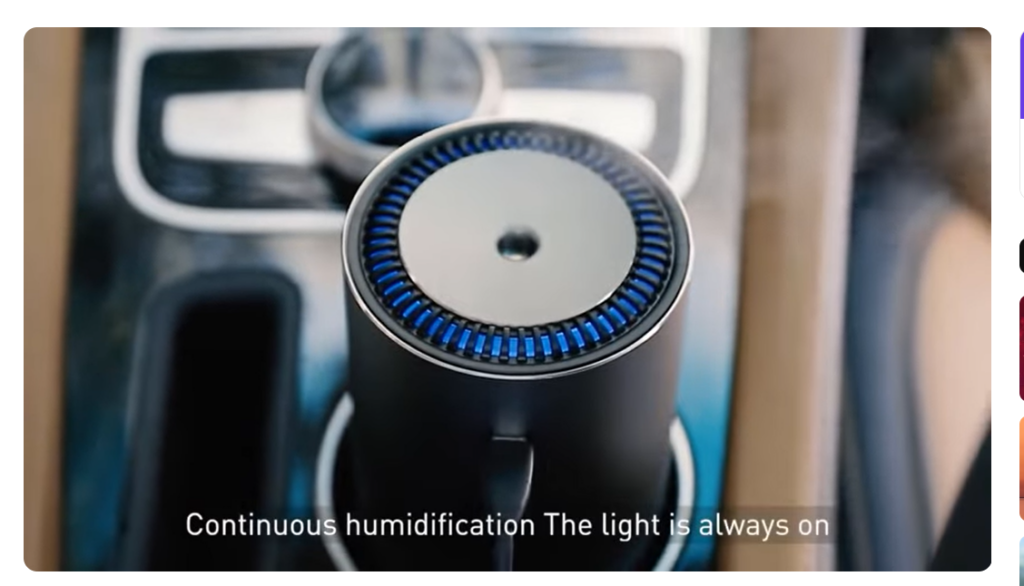
To recap, humidifiers add moisture to the air to combat dryness, while air purifiers remove pollutants to improve air quality. The choice between the two depends on your specific needs and concerns.
Humidifier vs Air Purifier: Which One is Right for You?
- Choose a humidifier if you:
- Live in a dry climate
- Experience dry skin, congestion, or sinus problems
- Want to protect wood furniture from cracking
- Choose an air purifier if you:
- Suffer from allergies or asthma
- Are concerned about pollutants like dust, pollen, or smoke
- Want to eliminate odors
Frequently Asked Questions (FAQ)
- Can a humidifier help with a cough?
Yes, a humidifier can help with a cough by adding moisture to the air, which can loosen congestion and soothe irritated airways. - Can an air purifier help with allergies?
Yes, an air purifier can help with allergies by removing allergens such as pollen, dust, and pet dander from the air. - Is it safe to run a humidifier all night?
Yes, it is generally safe to run a humidifier all night, but be sure to monitor the humidity level to prevent over-humidification. - How often should I clean my humidifier?
You should clean your humidifier at least once a week to prevent mold and bacteria growth. - How often should I replace the filter in my air purifier?
You should replace the filter in your air purifier according to the manufacturer’s instructions, typically every 3-6 months. - Are ozone air purifiers safe?
No, ozone air purifiers are not safe. Ozone is a harmful gas that can irritate the lungs and worsen respiratory conditions. - Can I use tap water in my humidifier?
It’s best to use distilled water in your humidifier to prevent mineral buildup. - Where should I place my air purifier?
Place your air purifier in the room where you spend the most time or where you have the most air quality concerns.
By considering your individual needs and following the tips in this guide, you can make an informed decision about whether a humidifier, an air purifier, or both are right for you. Improved indoor air quality comparison leads to better health.
My name is Carlos Gadd, and I am the creator of AirPurityGuide.com.. With a passion for footwear, I share my experiences, insights, and expertise about shoes. Through my blog, I aim to guide readers in making informed decisions, finding the perfect pair, and enhancing their footwear knowledge. Join me on this journey to explore everything about shoes!